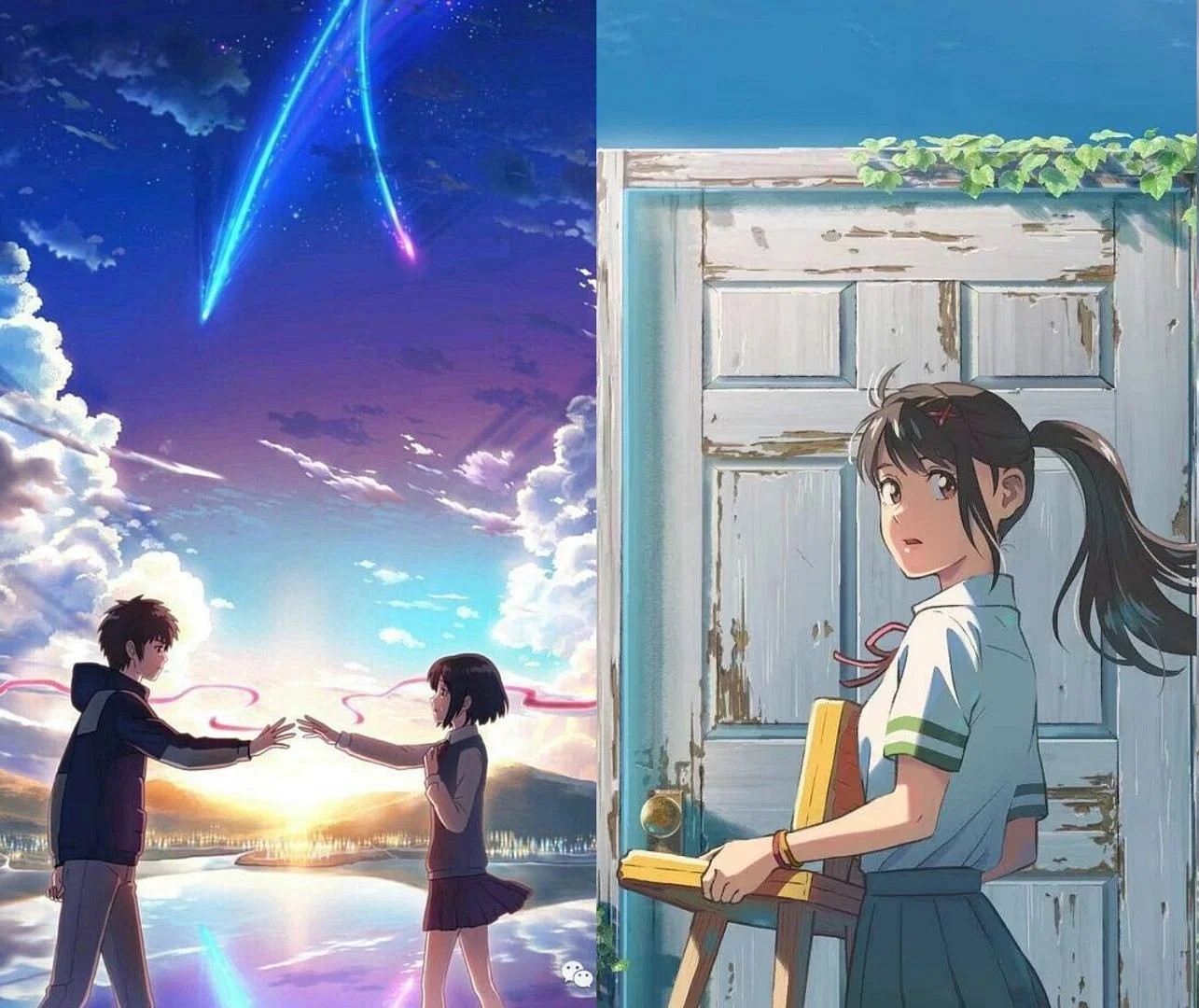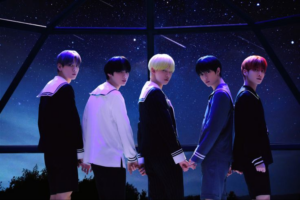Suzume vs. Your Name: An In-Depth Comparison of Two Makoto Shinkai Masterpieces
Makoto Shinkai has captivated audiences worldwide with his masterful storytelling and breathtaking animation. Two of his most celebrated works, “Your Name” and “Suzume,” have drawn comparisons for their emotional depth, visual artistry, and compelling narratives. In this blog post, we’ll dive into a detailed comparison of these two films, examining their plots, characters, animation styles, box office performance, and musical scores. Whether you’re a longtime fan of Shinkai’s work or new to these films, this analysis will provide insights into what makes each movie unique and why they resonate so deeply with audiences.
Suzume vs Your Name Comparison: Thematic and Plot Analysis
At first glance, Suzume vs Your Name comparison reveals that both films share common themes of love, loss, and the supernatural. However, the way these themes are explored sets each movie apart.
“Your Name” follows the story of two teenagers, Mitsuha and Taki, who mysteriously begin to switch bodies, leading to a deep connection that transcends time and space. The plot is a blend of romance, fantasy, and drama, with a twist that keeps viewers on the edge of their seats. The film’s narrative structure, which intertwines the characters’ lives across different timelines, adds a layer of complexity that is both engaging and emotionally impactful.
On the other hand, “Suzume” focuses on the journey of a young girl named Suzume who encounters a mysterious man and a series of supernatural doors that threaten to unleash disaster upon the world. The film delves into themes of healing, memory, and the passage of time, using the metaphor of closing doors to represent Suzume’s struggle to come to terms with her past. While “Your Name” is driven by the romance between its protagonists, “Suzume” leans more towards a coming-of-age story with a focus on personal growth and acceptance.
When analyzing Suzume vs Your Name plot analysis, it’s clear that both films use the supernatural as a vehicle to explore deeper human emotions. However, “Your Name” offers a more romantic and interconnected narrative, while “Suzume” provides a introspective look at the protagonist’s journey toward self-discovery.
Suzume vs Your Name: Which Is Better?
The question of Suzume vs Your Name which is better often arises among fans, and the answer largely depends on personal preferences. Both films are remarkable in their own right, but they cater to different emotional experiences.
“Your Name” is widely regarded as a modern classic, praised for its innovative storytelling, stunning visuals, and emotional depth. The film’s ability to seamlessly blend fantasy with real-world issues, such as identity and destiny, makes it a standout in Shinkai’s filmography. Its universal themes of love and longing resonate with a broad audience, making it a movie that can be enjoyed by viewers of all ages.
“Suzume,” while equally beautiful in its execution, offers a different kind of experience. The film is more introspective, focusing on the protagonist’s inner world and her journey to overcome trauma. The pacing is slower, allowing for a deeper exploration of Suzume’s character and the themes of healing and closure. For viewers who appreciate a more meditative and character-driven story, “Suzume” may hold a special appeal.
In conclusion, the debate of Suzume vs Your Name which is better is subjective. “Your Name” may appeal more to those looking for a thrilling, emotionally charged narrative, while “Suzume” offers a contemplative and introspective experience.
Suzume no Tojimari vs Your Name Differences: Visual and Artistic Styles
One of the most striking aspects of both films is their visual artistry. Suzume no Tojimari vs Your Name differences in animation style highlight Makoto Shinkai’s evolution as a filmmaker.
“Your Name” is known for its vibrant and detailed backgrounds, which beautifully depict both urban and rural Japan. The animation captures the beauty of everyday life, with meticulous attention to detail in the depiction of light, weather, and landscapes. The film’s use of color is particularly noteworthy, with warm tones conveying the romantic and emotional undertones of the story.
“Suzume,” while maintaining Shinkai’s signature style, introduces a more surreal and atmospheric approach to animation. The film’s visual style is characterized by its use of light and shadow to create a sense of mystery and otherworldliness. The supernatural elements are depicted with a dreamlike quality, enhancing the film’s introspective and symbolic narrative. The animation of the doors, which serve as a central motif in the film, is especially striking, symbolizing the passage of time and the boundaries between different worlds.
In terms of Suzume vs Your Name animation style, “Your Name” offers a more grounded and realistic visual experience, while “Suzume” leans towards a more abstract and symbolic representation of its themes. Both styles are visually stunning and serve to enhance the storytelling in unique ways.
Suzume vs Your Name Box Office: Commercial Success and Cultural Impact
When comparing the box office performance of the two films, Suzume vs Your Name box office figures reflect their widespread appeal and cultural impact.
“Your Name” was a massive commercial success, becoming the highest-grossing anime film worldwide at the time of its release. It grossed over $357 million globally, with a significant portion of its revenue coming from international markets. The film’s success was fueled by its universal themes, strong word-of-mouth, and critical acclaim. It quickly became a cultural phenomenon, influencing other media and even sparking a live-action adaptation.
“Suzume,” while also successful, did not quite reach the same level of box office dominance. However, it still performed admirably, grossing over $200 million worldwide. The film received positive reviews for its storytelling and visual artistry, though it did not achieve the same level of global recognition as “Your Name.” This may be due in part to its more niche appeal and introspective themes, which may not resonate as broadly with international audiences.
The Suzume vs Your Name box office comparison highlights the differences in the films’ reception, with “Your Name” emerging as the more commercially successful and culturally impactful of the two.
Suzume vs Your Name Music Comparison: Soundtracks That Elevate the Experience
Music plays a crucial role in both films, enhancing the emotional impact of key scenes and adding depth to the storytelling. The Suzume vs Your Name music comparison reveals the importance of soundtracks in Shinkai’s films.
“Your Name” features a memorable soundtrack composed by the Japanese rock band RADWIMPS. The music is an integral part of the film, with songs like “Zenzenzense” and “Sparkle” becoming synonymous with the movie itself. The soundtrack perfectly complements the film’s narrative, heightening the emotional intensity of the story. The music’s ability to convey the characters’ feelings and the overarching themes of fate and connection is one of the reasons “Your Name” is so beloved.
“Suzume” also features a beautiful soundtrack, though it takes a slightly different approach. The music in “Suzume” is more subtle and atmospheric, with a focus on instrumental pieces that reflect the film’s introspective tone. The soundtrack, composed by Kazuma Jinnouchi and RADWIMPS, creates an immersive soundscape that complements the film’s visual style and themes of memory and healing. While the music in “Suzume” may not be as immediately recognizable as that of “Your Name,” it plays a crucial role in shaping the film’s emotional landscape.
In terms of Suzume vs Your Name music comparison, both soundtracks are exceptional in their own right, each enhancing the unique qualities of their respective films. “Your Name” offers a more dynamic and emotionally charged musical experience, while “Suzume” provides a more contemplative and atmospheric soundscape.
Suzume vs. Your Name – A Masterclass in Storytelling
In the end, the comparison between Suzume vs Your Name comes down to the different experiences they offer. Both films are masterpieces in their own right, showcasing Makoto Shinkai’s talent for blending breathtaking visuals with emotionally resonant stories. Whether you prefer the romantic and interconnected narrative of “Your Name” or the introspective and symbolic journey of “Suzume,” there’s no denying the impact these films have had on audiences worldwide.
For more insights into storytelling and the techniques used by master filmmakers like Makoto Shinkai, visit Regent Studies. Additionally, if you’re interested in exploring more about the cultural impact of anime, check out this external review on the influence of Japanese animation on global cinema.
“Suzume” and “Your Name” are more than just films—they are emotional journeys that leave a lasting impression, each offering a unique perspective on the power of love, memory, and time. Whether you’re revisiting these films or experiencing them for the first time, they are sure to captivate your heart and mind.




